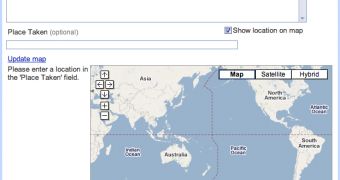Picasa Web Albums or Google's photo sharing service is now available in 38 languages after the Picasa team included support for several new countries. Among the new ones, I can mention Bulgarian, Hindi, Slovenian, Filipino or Thai. In addition, Picasa Web Albums was improved with mobile support which enables the consumers to access their service anytime from any location. As you can see, the Mountain View company struggles to make its technologies available in more and more languages around the world, because "it's a priority for us to bring our products in you language", as Michael Champlin stated at the Google Apps presentation a few days ago in Bucharest, Romania.
"Today, we're happy to announce that Picasa and Picasa Web Albums are now available in 38 language interfaces. Our newest arrivals include Bulgarian, Catalan, Hindi, Indonesian, Latvian, Lithuanian, Serbian, Slovakian, Slovenian, Filipino, Thai and Vietnamese", Pam Benjatanaporn, Program Manager, wrote on the Google Photos Blog.
"Additionally, we've just added international support for Picasa Web Albums for mobile devices, as well as for our 'Map My Photos' feature, which lets you show people exactly where you took your favorite snapshots."
The mobile support for Picasa Web Albums is a pretty useful addition which makes me think Google is really interested in a mobile technology. In fact, Google already owns several mobile solutions, but it was rumored that the super giant wants to develop a mobile operating system or even a mobile device. Moreover, the speculations pointed to the fact that some handhelds manufactured by HTC were supposed to be delivered to developers in order to design and build Gphone-compatible applications.
It's easy to believe that a potential Gphone would destroy the competition, but the Mountain View company doesn't seem to be interested in such a move. In addition to the numerous denials, Google's representatives also stated that their company is only a software firm and will remain so for a long time as the hardware production is not considered a priority at the moment.

 14 DAY TRIAL //
14 DAY TRIAL //